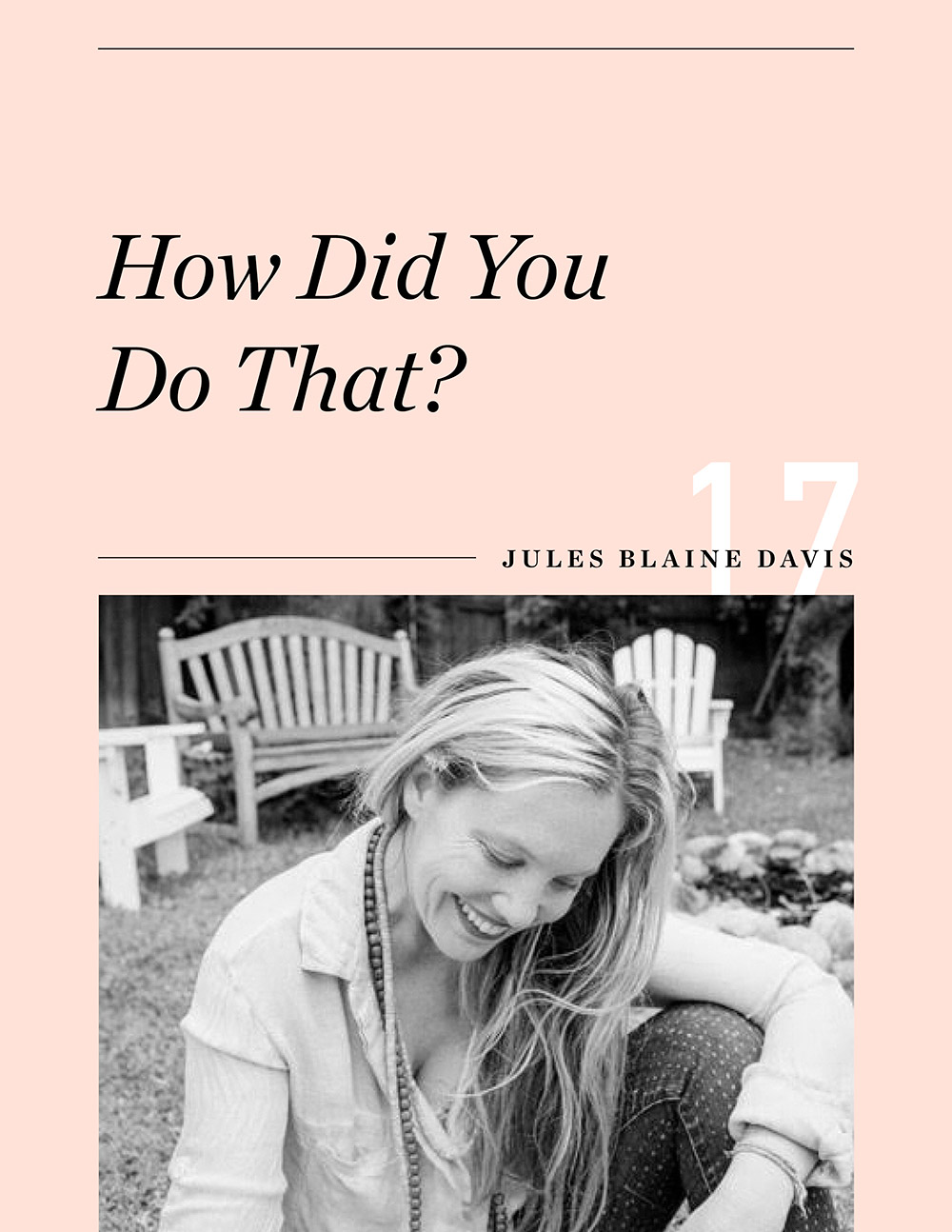
Whenever I meet someone who’s got a really cool job, who runs a thriving business, or who has completed an amazing project, I always want to know: “How did you do that?”
I’m always curious to hear the “behind-the-scenes story” — who they emailed, what they said, how they got their first client, how they got their foot in the door — the exact steps that they took to achieve their goal.
HOW DID YOU DO THAT? is an interview series where we get to hear the REAL story behind someone’s success—not the polished, neat and tidy version.
To see a complete list of all the interviews that have been completed to date, head over here.
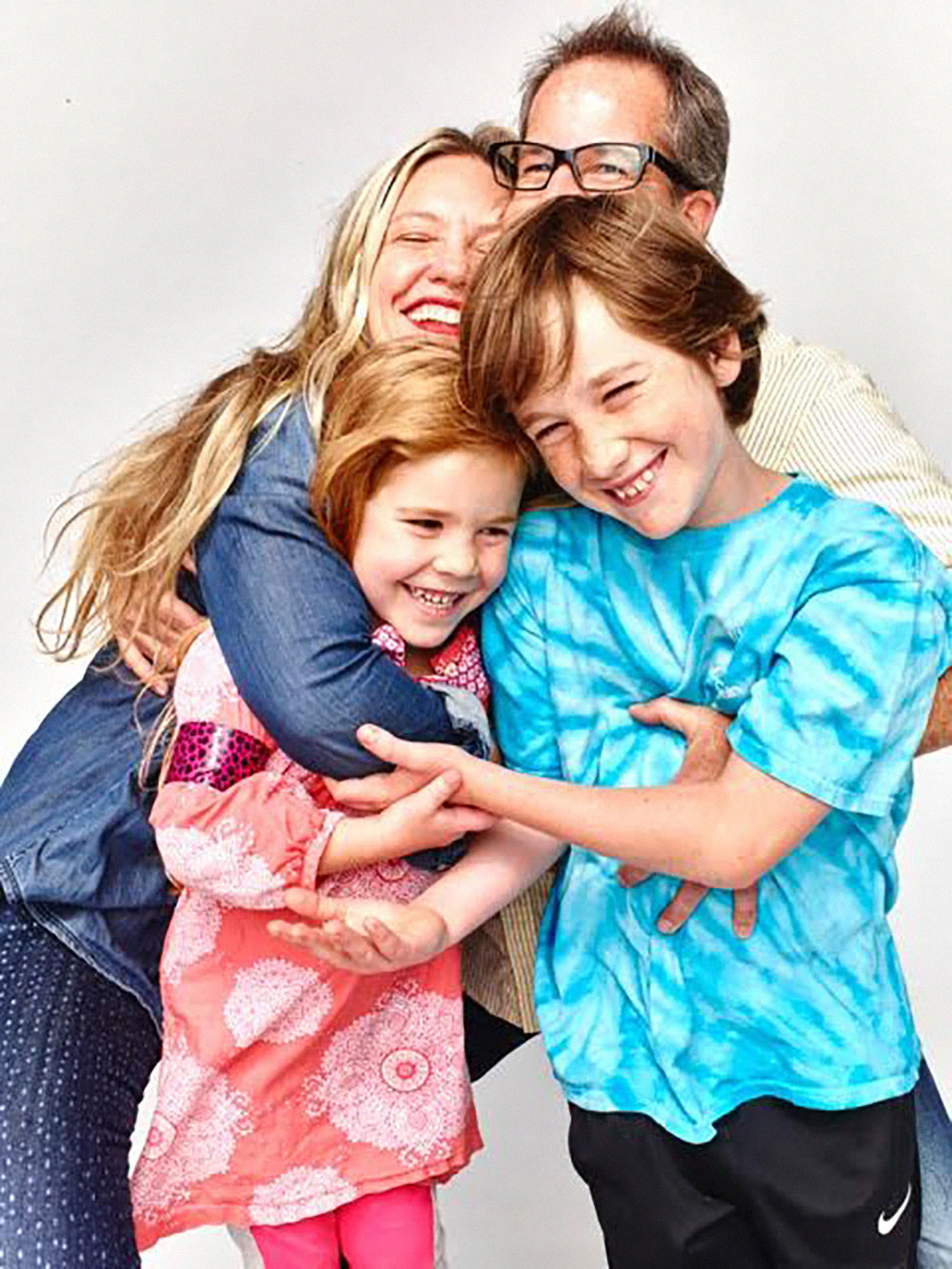
Name: Jules Blaine Davis
Location: Los Angeles, California
Profession: Kitchen Healer
You call yourself a “kitchen healer,” which is a pretty fabulous job title, if you ask me! You go into people’s homes, you talk to them about their relationship with cooking and food. You help your clients identify what they’re truly hungry for, both physically and spiritually, and then you help your clients come up with new cooking traditions that help them feel nourished and energized. It’s kind of like therapy or life coaching… but with a foodie twist. How did this all begin? Did you just wake up one day, and decide, “I’m a kitchen healer, that’s my job, now?” Or was it a more gradual process?
I would say that I’m still becoming a healer. So let’s just put that out in the space.
The beginning of the work began when I became a mother. Being a home for a body began many conversations for me. Of course, you want to nourish that being and to do that you need to nourish your own body, even look at your own body, even remember that you have a body.
I’m someone that loves to find out about fun things and then invite the person to come to my house and do them. At that time especially, I loved having people in my home, and so I had a music class in my home, and moms would come and I would be roasting some veggies and quinoa in the rice cooker, and my son would be napping, and then by the time the class started hopefully he would wake up.
Everyone would be breastfeeding and banging the drum and just connecting with each other in the only way we really knew how at the time, through deep exhaustion and knowing that this was our one outing of the day.
And inside that, I just really loved nourishing people and it was never an “event” for me. I never felt like “Oh my gosh, people are coming over and it’s an event.” It was simply “Oh great, more bodies to feed.”
I would just throw stuff in the oven and turn on the fire. The women gathering in my home were sharing such profound stories, and also they would share about how they have no idea how to be in the kitchen and create a sense of home. They didn’t know how to boil water, they didn’t know how to feed themselves, they didn’t know how they were going to nourish their baby.
And listening to all the stories and reading the few Michael Pollan books that had come out, and Alice Waters, and also Rachel Naomi Remen and Mary Oliver, and just my background in what I hunger for, I realized “Oh my gosh, these women are starving.”
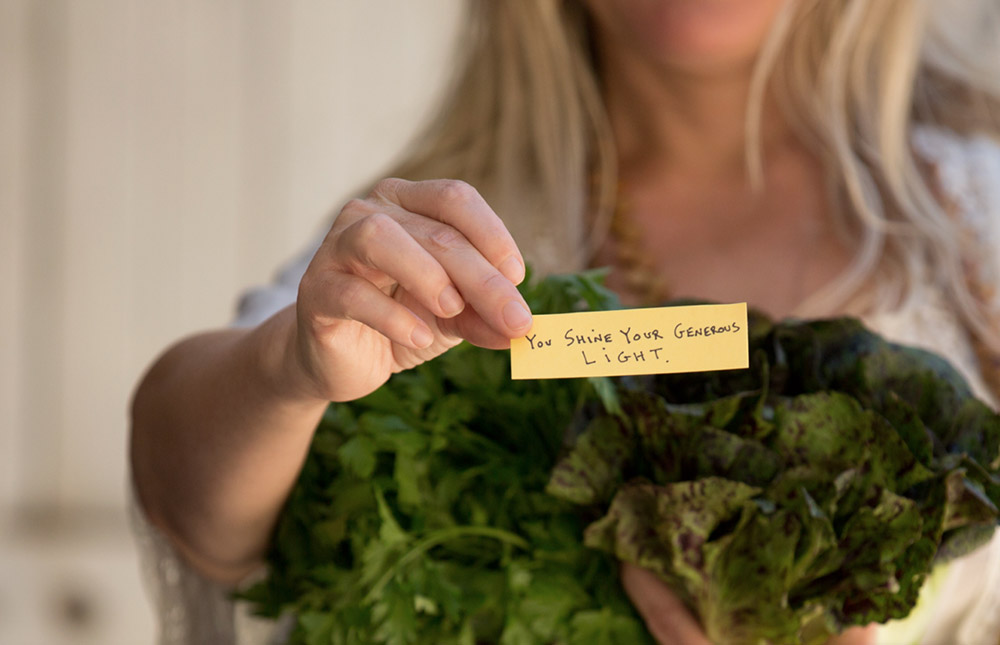
You say “these are women are starving.” Starving for what? For food? For something more than food?
Starving for nourishment on every level, I would say. Physical, emotional, spiritual. That is not to say I wasn’t hungry! I was hungry for their stories. I was hungry for their hunger. So the gatherings with women and food and beauty and healing began. We were all hungry for each other. We still are. We need each other.
It was about food, but also not about food. Because really, where we are nourished or where we aren’t nourished shapes our entire body. It shapes our life. It shapes the relationships we’re in. Our physical shape and our emotional shape. And so the beginnings of my work were really about just going into women’s kitchens.
So, women in your community would invite you into their kitchens… and then what would happen? Cooking? Talking? Counseling?
At first what I did was organize. “Oh the foil can’t afford to be in the drawer next to the oven ’cause there’s only one drawer and you need other things in there in order to put the fire on.” These kitchens were not being used and even if they were, it was hard to get in there. All of the beauty that was their kitchen was just an empty vessel that needed fire and love and tending and wisdom. The lineages that were in that woman needed to arrive.
I would ask her questions like, “What do you think about this peeler? What do you think about this knife? Do you use this? What do you think about it over here?” I’d move all the wood spoons—if they had maybe even one—into a cracked pot from a cactus outside that was dying and then just do that, put some salt in the jar, put the butter out. Get a big old Straus milk bottle and fill it with water and just get the lentils in some Ball jars. The major movement in their homes that these small changes made, blew them away.
Whatever the stories are, they all live inside what happens in the kitchen or what doesn’t happen. And so, we get to rewrite that story in how we set the kitchen up, in how we tend to it. And that is where I began.
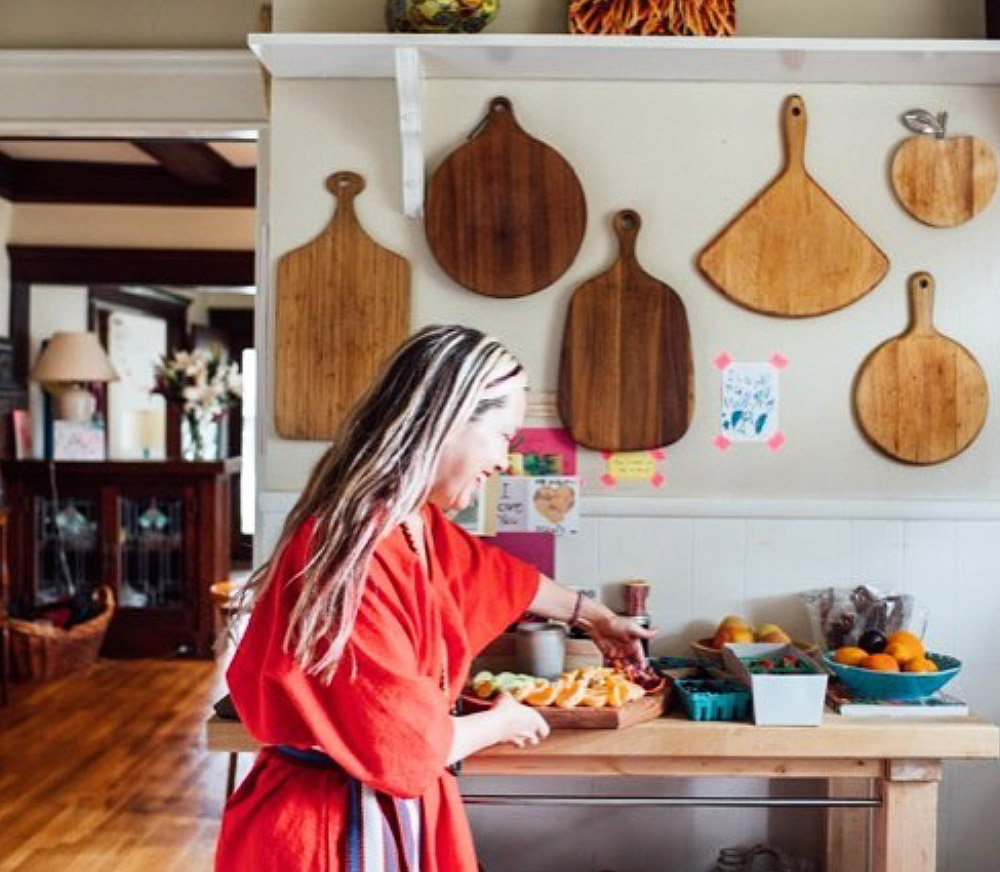
And then what happened after you re-organized the kitchens. Was that enough to make a deep, lasting difference in your clients’ lives?
I would work with all different kinds of women, wherever they were. It was like restructuring, re-building, getting the mortar and pestle out to build a culture that where one did not exist
Some people naturally have an aroma in the home—the chicken soup on the stove, the beans and rice in the oven, because it’s in their culture. All of us long for that deeper warm nourishment and where one does not exist, we need to build it.
So, I would do that. We would go to the market, we would gather, I would show up the next day and cook with them, make tons of food, bring the smells and heart into the kitchen. We’d do it for a few weeks, I’d leave, and three months later, I’d come back and see that our work didn’t fully integrate into their day to day lives.
I realized that the stories they would share with me while we were cooking, while we were gathering, all they had to say about this bowl or this teacup was where the medicine lives. This was the bridge to where they wanted to get to and who they were becoming as women, mothers, nurturers.
On this bridge was grief of what didn’t happen, or what did and how wrong it was or just the deepest longing to be held and loved in the way they could feel. There was shame and vulnerability and hunger. All of these pieces were the medicine they brought me so they could heal and turn on the fire in their kitchens and in their lives.
The “kitchen healer” was born in that realm, but really it was like, kitchen and then healer came later.
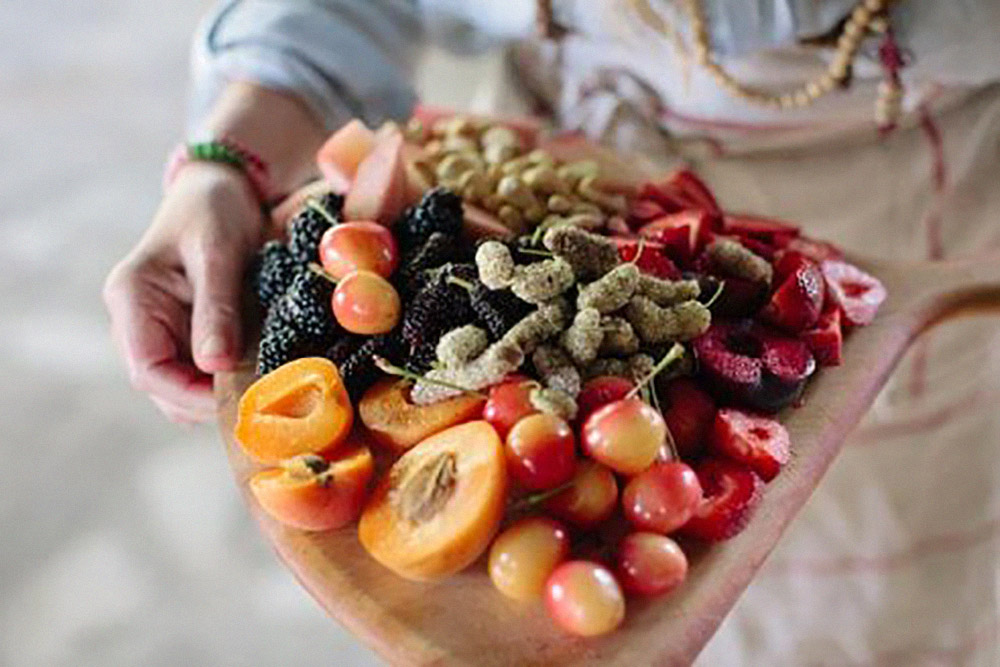
As you began doing this work as a kitchen healer, were you able to find plenty of clients right away? Or was it difficult?
It was word of mouth and it was not easy. The answer truly is that I just kept showing up for the conversation because I was so hungry for it. I’d show up in many ways; I’d show up catering something for a group of doulas, I’d show up doing different things with food, that really wasn’t aligned with what I was doing; but then I would share while they were eating. I got a few clients, but it wasn’t sustainable. But those few clients got me to the place where I could buy the food for the next gathering of women that would come over.
It was also a time of grief for me. I needed to learn how to make money as an artist, and in the beginning I felt horrible that I couldn’t figure it out. But I just kept saying “yes” to everything where I could share what I was up to. I just kept showing up to myself. I had lots of doubts, to be sure. I just think that I knew I was hungry for this connection, and I figured if I was hungry, they must be hungry too.
Now that you know the depth and the complexity of what you’re unpacking, what are the different ways you work with people? Do you work with them one time only? Do you work with them over the course of a month, over five months? Do you have packages? Or is it more organic than that?
I mostly work virtually. Right now, I’m doing a five-month journey and I’m only working with five women. The journey might begin with me learning their emotional landscape, their story, and it’s not always about food, but of course it always comes to that. And then we’ll go in the kitchen, virtually, and I’ll see where they’re at and what they’re inside of, and also just how they’re eating, what they’re eating, but it’s not so much nutritional as it is how they feed themselves. Over the course of five months they get to reshape and rewrite their story inside their lives. And of course my ultimate goal is that they integrate all this learning, so that these are real changes.
What’s beautiful about the journey is that they have me at any point. Some clients write me every single day, some clients write me every week, some clients just see me for our 2-hour session each week. The more you lean in, the more you’re held accountable, the more you’re willing, transformation occurs. Accountability is a big part of it. There’s a lot of different modalities inside the therapy that helps reveal and unravel deep needs and deep hungers, and so when they come up, they’re held in it. I’m right there with them the whole time.
I also teach a class once a month in Culver City called Body, which is a two-hour experience where we move our bodies to phenomenal music. There’s poetry woven in, and then we circle and have wood board love—where I put beautiful food out on handmade cutting boards and we talk and eat and connect.
The only way to really be with me physically, at the moment, is through that class and on retreat—both in October and May in British Columbia.
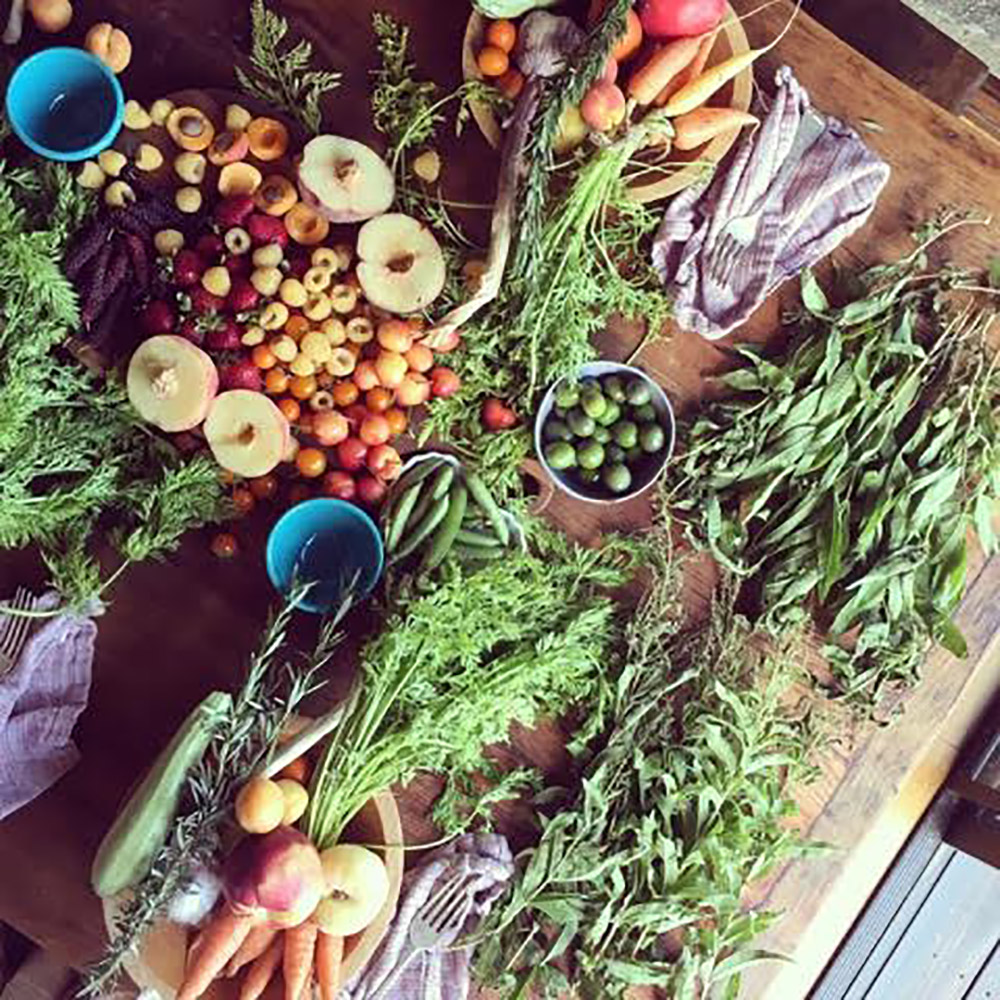
You recently got interviewed on GOOP, Gwyneth Paltrow’s wellness and lifestyle blog. How did you feel when that interview came out? Did it feel exciting? Did it feel strange to be thrust into such a big public spotlight? A little of both? Also, how did that interview come about? Did they contact you out of the blue?
It was the first time the work had ever gone out into the world in a translatable way that people could really hear it. It took10 years, and it felt phenomenal. The work was completely seen and held by them. Elise, the main mama of the Goop world, had heard about me for a few years. We know a few people in common. After many years of gathering so many different kinds of women, you never know who’s at the table, and you never know who they’re talking to later, who they’re going to get on the phone with when they leave your house after a day of beauty and nourishment, and so I think over time people begin to know who you are.
Again, it connects to the “showing up” piece. So the Goop article was an amazing “hurrah.” I’m still so honored to have it out in the world. I love that it’s definitely cleaner and more organized than my own way of sharing my work.
The article came at a perfect time in my career. I wasn’t ready before. I had to figure out my business. I had to heal my money wounds. So when women wrote me because they read the article, I was ready.
More than anything, what was the most rewarding result of the article, was hearing from women who were in the women’s liberation movement, grandmothers who wrote me and thanked me for naming something that hasn’t been named. I would just sit at my computer crying. I long for elders. I long to be with women in their 60s and their 70s and their 80s and their 90s.
We so need that. We don’t need a bunch of 30-year-olds hanging out and talking about how much they know. That’s not serving the world. We all need to be together in circle to be talking about what is hunger. Where did you come from? What’s shifted for you? Oh, you made it through that. I’m going to make it through this. That is, I think, the utmost nourishment.
Ten years from now, what type of work do you imagine yourself doing? Exactly what you’re doing now? Or something different?
I would say that in 10 years, I would love things to be with more ease.
I see this work being much more prominent in conversation, definitely integrated more into the culture. I see it taking on many lives of its own. Inside all different homes, inside women gathering more because they’re inspired by the work I’m doing.
I definitely see that I will be writing books, and I see a lot of travel with those books. The other thing I really see and really want is that I want to sit with grandmas. I want to sit with grandmothers in the kitchens of Italy and in all different cultures. I just want to take notes.
I will keep showing up for whatever scares the hell outta me, what is so uncomfortable, continuing to move out of my own way and keep showing up for what is possible. And if that means more books and traveling, if that means meeting the most divine, gifted humans on the planet that don’t have an Instagram feed or aren’t completely famous or whatever that is, I just want to keep expressing and being.
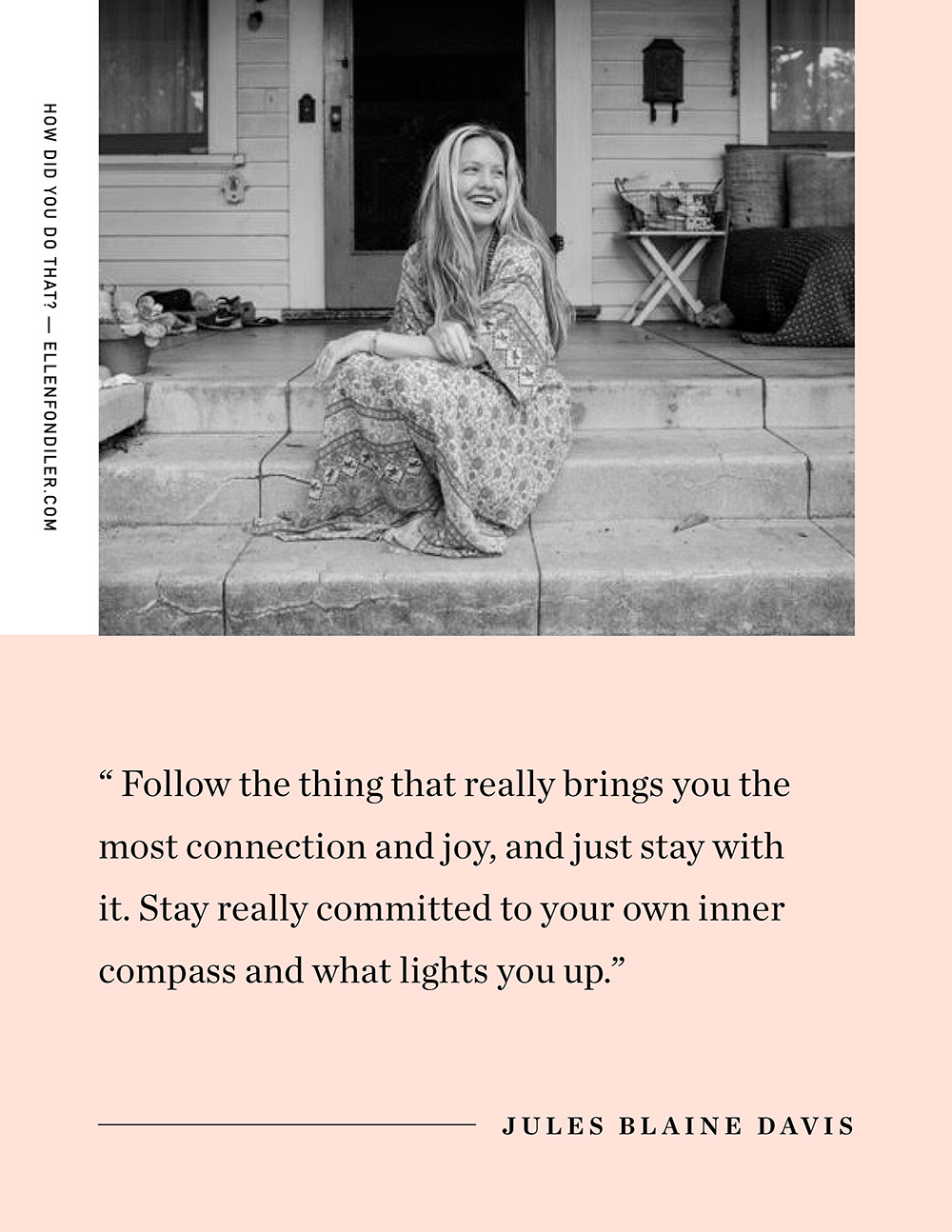
3 THINGS
Imagine it’s 10 years ago. You’re just beginning your kitchen healing business. What’s some advice you’d give to that younger version of yourself?
1. What would I say to her? Dance more with your clients in the kitchen. “Put on the music and dance with them.”
2. The second is, “stop over-laboring, you’re enough.” It’s hard to not over-labor when you are just starting and walking in a forest that no one has walked before. But I just kept pushing. I could have taken a breath.
3. And the third would be, it’s going to be okay. It’s a long road. Fill that fear, that loneliness, that “Oh my gosh, wait, I sent this thing out and no one replied”, fill that with yourself. Fill that with a walk, a tea, an amazing book you love. Go away. Fill that, that nonsense, that noise of “Oh maybe it isn’t a good time to do that,” or “Maybe I’m not going to make money doing this.” Fill that fear with something that’s nourishing.
There’s a beautiful quote that I’m going to end with by the poet Rupi Kaur:
“Loneliness is a sign you are in desperate need of yourself.”
That’s sums up what I try to do with my work. Bring women back to themselves.
ONE MORE THING…
Do you have “one more quick question” that you’d like to ask Jules? Email me and tell me what you want to know! I might choose your question for my ONE MORE THING… Podcast (Coming soon!!!)
YOUR #1 CAREER GOAL: ACHIEVED
Do you need some encouragement to help you achieve a big, daunting career goal? Would you like to have a career coach/strategist in your corner—feeding you ideas that you’d never considered before, helping you figure out who to contact, and what to say, and checking in to make sure you don’t procrastinate? If so… click here to find out how we can work together. I’d love to coach you!
![]()
Photos: Emily Knecht, Cynthia Perez, Charley Star, Dewey Nicks and TEDx.
